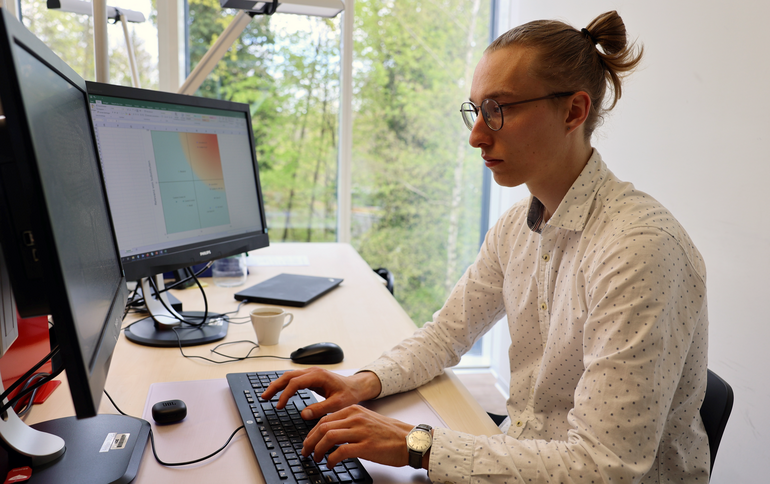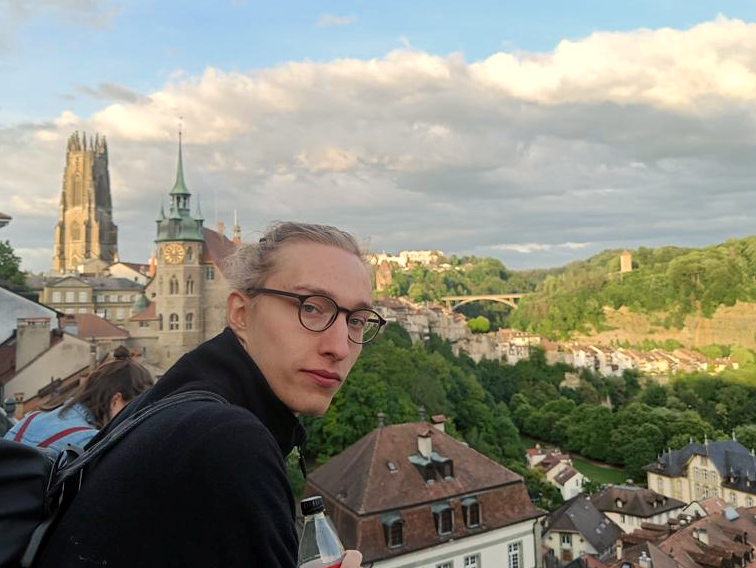For IP professionals
This is the portal for professionals working in the field of intellectual property. Here you'll find direct access to all necessary resources.
Quick links
“IP is extremely interesting from an economic perspective”
After obtaining a Bachelor in Economics, Julian Loosli completed a six-month internship with the Legal & International Affairs Division of the Swiss Federal Institute of Intellectual Property (IPI). Julian assisted the economics team with their daily tasks. In an interview, he spoke to us about the work of the Economics Unit and explained how the internship has influenced his future career plans.

Julian, why did you apply for an internship at the IPI?
After doing my first internship in management, I was looking for one related to economics because that’s what I’m studying and I’d like to work in that area in future. I was particularly interested in economic policy, which was also the topic of my dissertation. Intellectual property (IP) law is also a matter of economic policy because the rights to inventions and creative works address a market failure and promote innovation. So the internship at the IPI was exactly what I was looking for.
The majority of the staff in the Legal & International Affairs Division are lawyers. What exactly do the IPI’s economists do?
The work is very varied. We primarily analyse the impact of current economic, technological and social developments on IP rights and examine whether the rights are still appropriate. The IP system needs to protect inventions and creative works, but it also shouldn’t allow protection to become too strict. That would hinder innovation. We either do these analyses as part of the legislative process, for example to evaluate the consequences of a change in legislation, or proactively in response to the developments I mentioned.
Do you have a concrete example?
Artificial intelligence (AI) is highly topical at the moment. I chose to examine it in detail for my final thesis at the IPI.
AI makes it easier and cheaper to create works, for example. I can create a comic strip without being able to draw or mix music without being a sound technician. Although that can be a positive thing, it also raises many questions: should an ‘AI work’ be afforded the same protection as a handmade one? If so, it would create a major economic incentive to continue to develop artificial intelligence. But wouldn’t that disadvantage artists and other creative individuals because they have higher costs? What would be the best solution? We investigate these kinds of economic questions and present possible courses of action to policymakers.
Besides the AI study, what other tasks were you entrusted with?
Besides AI, I also summarised current literature and scientific debate on the topics of media economics, competition policy, trade secrets and data sharing and evaluated their relevance for the intellectual property system. I also helped with the preparations for World Trade Organization (WTO) meetings, updated internal information resources and statistics, proofread texts and examined new studies, news and office consultations in terms of their relevance for the IPI. The tasks were very diverse.

What did you like the most about your internship and the IPI?
The team involved me in all relevant tasks, and I felt that my work was valuable to both the team and the IPI.
It was a special privilege to be able to attend various meetings with other federal agencies and to accompany the IPI delegation to a one-day meeting at the WTO. I really appreciated these opportunities because I got a behind-the-scenes look at various other jobs and institutions. They helped me to determine my career aspirations and influenced my decision to do a Master in International Economics. The insights I received into the work of the other teams in the Legal & International Affairs Division also impacted this decision, particularly the International Trade Relations team. I was always encouraged to find out about all the division’s activities.
Finally, I was able to work on fascinating topics, which was very motivating. IP concerns more areas that you would think and is extremely interesting from an economic (and also a moral and ethical) perspective.
What’s next for you after the IPI?
In September, I’ll start a two-year Master in International Economics at the Graduate Institute of International and Development Studies (IHEID) in Geneva. Before that, I’ll be travelling around India for three months.

In his free time, Julian likes to travel, plays a lot of sport and enjoys outdoor activities – especially with his friends, who are very important to him.
Thanks for talking to us, Julian, and all the best for the future!
